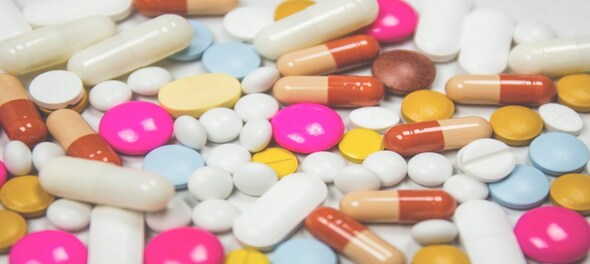
The Rajya Sabha was informed on Tuesday that out of 88,844 drug samples tested between April 2021 and March 2022, more than 2,500 drugs were found to be "not of standard quality," and 379 were identified as spurious.
Minister of State for Health Bharati Pravin Pawar said that during the same period, 592 prosecutions were launched against those involved in the manufacturing, sale and distribution of spurious or adulterated drugs, per drug controllers.
When asked about the government's actions against drug manufacturers responsible for international deaths, Pawar highlighted that the Central Drugs Standard Control Organisation (CDSCO) has carried out joint investigations in coordination with state drug controllers.
The government has issued notices to and taken action against Maiden Pharma and Marion Biotech, the minister pointed out.
On central drug regulation, Pawar noted that the Drugs and Cosmetics Act, 1940, amended under the Drugs and Cosmetics (Amendment ) Act, 2008, imposes stricter penalties for the manufacture of spurious and adulterated drugs. Certain offences have also been made cognisable and non-bailable.
Additionally, special courts have been set up in states and Union Territories to expedite the trial of offences under the Drugs and Cosmetics Act. The CDSCO has also significantly increased the number of sanctioned posts in the last decade.
To ensure drug efficacy, the Drugs and Cosmetics Rules, 1945, have been amended to require applicants to submit the results of bioequivalence studies along with applications for manufacturing licenses of oral dosage forms of certain drugs.
The manufacturing establishment must undergo a joint inspection by drug inspectors from the Center and state before the grant of a manufacturing license.
Furthermore, amendments to the Drugs and Cosmetics Rules, 1945, make it mandatory for applicants to submit evidence of stability and safety of excipients to the State Licensing Authority (SLA) before obtaining a manufacturing license.
Pawar mentioned that the CDSCO plays a pivotal role in coordinating the activities of State Drug Control Organizations and providing expert advice through the Drugs Consultative Committee (DCC) meetings, aiming to ensure uniformity in the administration of the Drugs and Cosmetics Act.
SLAs appointed by respective state governments exercise regulatory control over drug manufacturing, sale, and distribution through licensing and inspection systems.
Manufacturers are required to comply with the conditions specified in their licenses under the Act and Rules to sell and distribute drugs in the country. Cases concerning the quality or safety of drugs are handled by the SLA, which can take necessary actions, including prosecution in the appropriate court of law.
With agency inputs.
Check out our in-depth Market Coverage, Business News & get real-time Stock Market Updates on CNBC-TV18. Also, Watch our channels CNBC-TV18, CNBC Awaaz and CNBC Bajar Live on-the-go!


2024 Lok Sabha Elections | Will Amethi and Rae Bareli see the rise of Priyanka Gandhi as a dominant political figure
May 18, 2024 8:59 AM
Lok Sabha Election 2024: I.N.D.I.A. bloc to hold rally at Mumbai's BKC today
May 17, 2024 5:18 PM
In Ayodhya, voters talk of a promise fulfilled and yearning for development
May 17, 2024 2:10 PM
Fight of heavyweights in Sambalpur where farmers, weavers hold the key
May 17, 2024 12:25 PM

